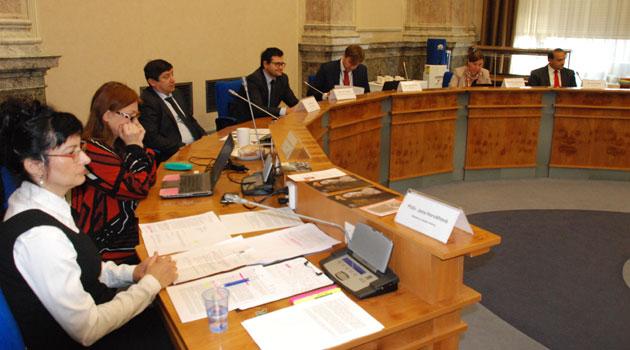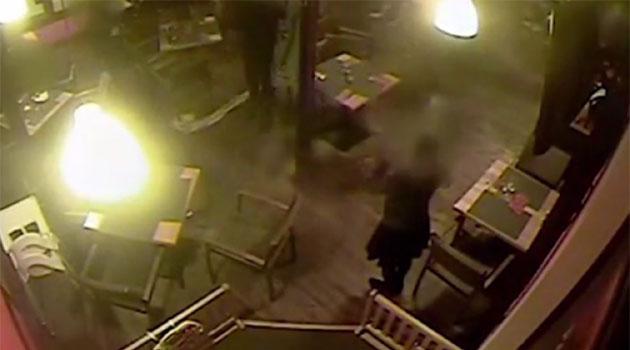Czech Govt Roma Council discusses death case, Romani representatives express growing sense of danger

At its session on Friday, 17 February, the Czech Government Council on Romani Minority Affairs discussed the outcome of the investigation into the death of Mr Miroslav Demeter, a young Romani man who died last year in October at a pizzeria in the Czech town of Žatec. The Romani civil society members of the council expressed their concerns about and objections to the investigation of the case and generally, in that context, their growing sense of danger with respect to their own security in the Czech Republic.
News server Romea.cz was later informed by the civil society members of the Council and by Jiří Souček of the Government’s press department about the meeting. The case of the death of the young Romani man was shelved at the end of January with the finding that he had died without a third party being to blame.
According to a press release issued by the civil society members of the Council, opinions about the approach to the police investigation were conveyed to them on Friday by JUDr. Michal Barbořík, the head of the Department of Crime Prevention and Internal Security at the Czech Interior Ministry, Deputy Police President Colonel Ing. Mgr. Jaroslav Vild of the Criminal Investigation and Police Services, and Colonel Mgr. plk., the Deputy Regional Director for the Criminal Investigation and Police Services of the Police of the Czech Republic in the Ústecký Region. The case of Mr Demeter’s death is scheduled to be reviewed in March at a session of the Republic-wide Crime Prevention Committee at the Czech Interior Ministry.
“Discussion was held about possible misconduct on the part of the police officers who were present when Mr Demeter died and generally about the broader context of the entire case, including a lack of faith in the police among Romani citizens,” the Romani civil society press release says. Those members of the Council reminded those assembled of several other controversial cases of police procedure recently and demanded that the clarification and prosecution of hate crimes receive the appropriate attention and priority.
“The cases of children being assaulted at the Romano Drom singing camp and the cyberbullying and verbal attacks against the journalist Patrik Banga and the singer Radoslav Banga must be properly clarified,” the Romani members’ press release says. “A basic prerequisite for Romani people to have faith in the execution of justice is that the thorough prosecution of hate attacks must be seen to be done. It is important to the feeling of safety for the broader Romani community that Romani people be informed, in an ongoing, transparent way, about the course and outcomes of these criminal proceedings, not just through direct communications, but also through the public broadcast media and the Romani media.”
Czech Education Ministry’s communications with the public, support for strong Romani figures
The Council also approved a plan for the Romani Holocaust Memorial at Hodonín u Kunštátu to be managed by the Museum of Romani Culture and heard information about the form of the prepared social housing law at the opening of the session. The Czech Ministry of Education, Youth and Sport (MŠMT) was also called upon by the Council to improve its communication with the public.
MŠMT described to the Council how it is fulfilling its obligation to inform the legal representatives of pupils and schools about the changes that have been introduced by a recent amendment to the Education Act. “The MŠMT representative, Deputy Minister Václav Pícl, in addition to other matters, offered that a representative of the ministry’s press department could participate in the future meetings of the Working Group on Education that advises the Council,” the civil society members’ press release reads.
From the information provided by the ministry representative to the Council it can be understood that the numbers of pupils now educated according to the (now-abolished) “mild mental disability” curriculum in upper primary school are falling. The ministry also promised to inform municipalities and nursery schools about how children can fulfill their obligation to attend a final year of preschool education.
The Council then adopted a resolution in which it asks the ministry to support, through the Operational Programme for Research, Development and Education, nonprofit organizations to inform the parents of Romani children about the changes underway in the school system. The Council also proposed that the announcement of the second round of the subsidy program to fund community work include, as a supported activity, looking for strong Romani figures from various communities and supporting the development of their leadership skills.
The Council also heard, as is traditional, detailed information about the activities of the Agency for Social Inclusion, specifically about the functioning of the Coordinated Approach to Socially Excluded Localities in České Velenice and Ostrava. The next session of the Council is planned to take place at the end of April or beginning of May.
